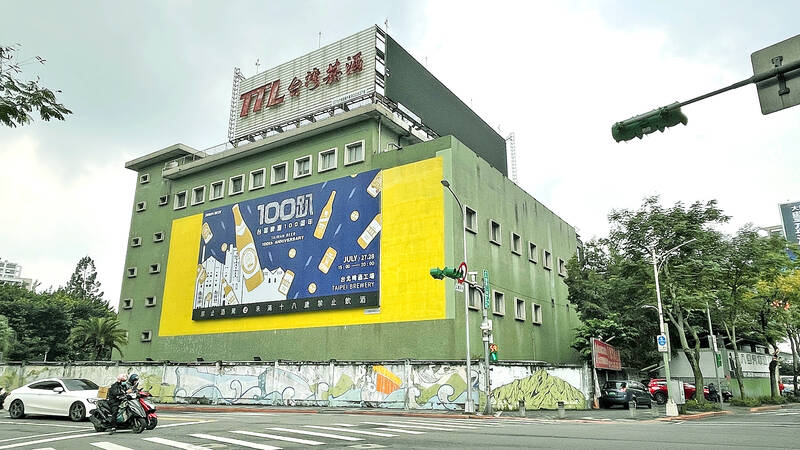The prices of some Taiwan Beer products would be raised over the summer to reflect higher international raw material prices, Taiwan Tobacco and Liquor Corp (TTL, 台灣菸酒) said yesterday.
Effective from June 1, the company raised the prices of Gold Label, Classic and 18 Days Draft brews in kegs and bottles by 1 to 2 percent for large-scale wholesalers and by 3 to 7 percent for small-scale wholesalers, it said.
Following the hike, the price of a keg of beer rose by an average of NT$10 (US$0.33) per liter and the price of a case of beer containing a dozen 600ml bottles rose by average of NT$36 to NT$60, TTL said.

Photo: George Tsorng, Taipei Times
As the adjustment only altered wholesale prices, the changes would mainly be noticeable at venues such as “hot-fry” restaurants and nightclubs, the company said.
The price of canned beer sold at supermarkets and convenience stores would not be raised until August or September, after a new batch of those beers has been produced, it said.
TTL said that it had not raised Taiwan Beer prices in more than 20 years.
It said that as a state-run corporation, it has to remain profitable to transfer a required NT$6 billion to the national coffers each year, which is why the price hikes were necessary.
The company said that many imported beer brands increased their prices last year in light of higher raw material costs.
In terms of its other products, TTL said the price of its rice wine — which it sells at a loss — would remain the same, due to its widespread use as a cooking ingredient.

Vincent Wei led fellow Singaporean farmers around an empty Malaysian plot, laying out plans for a greenhouse and rows of leafy vegetables. What he pitched was not just space for crops, but a lifeline for growers struggling to make ends meet in a city-state with high prices and little vacant land. The future agriculture hub is part of a joint special economic zone launched last year by the two neighbors, expected to cost US$123 million and produce 10,000 tonnes of fresh produce annually. It is attracting Singaporean farmers with promises of cheaper land, labor and energy just over the border.

US actor Matthew McConaughey has filed recordings of his image and voice with US patent authorities to protect them from unauthorized usage by artificial intelligence (AI) platforms, a representative said earlier this week. Several video clips and audio recordings were registered by the commercial arm of the Just Keep Livin’ Foundation, a non-profit created by the Oscar-winning actor and his wife, Camila, according to the US Patent and Trademark Office database. Many artists are increasingly concerned about the uncontrolled use of their image via generative AI since the rollout of ChatGPT and other AI-powered tools. Several US states have adopted

A proposed billionaires’ tax in California has ignited a political uproar in Silicon Valley, with tech titans threatening to leave the state while California Governor Gavin Newsom of the Democratic Party maneuvers to defeat a levy that he fears would lead to an exodus of wealth. A technology mecca, California has more billionaires than any other US state — a few hundred, by some estimates. About half its personal income tax revenue, a financial backbone in the nearly US$350 billion budget, comes from the top 1 percent of earners. A large healthcare union is attempting to place a proposal before

KEEPING UP: The acquisition of a cleanroom in Taiwan would enable Micron to increase production in a market where demand continues to outpace supply, a Micron official said Micron Technology Inc has signed a letter of intent to buy a fabrication site in Taiwan from Powerchip Semiconductor Manufacturing Corp (力積電) for US$1.8 billion to expand its production of memory chips. Micron would take control of the P5 site in Miaoli County’s Tongluo Township (銅鑼) and plans to ramp up DRAM production in phases after the transaction closes in the second quarter, the company said in a statement on Saturday. The acquisition includes an existing 12 inch fab cleanroom of 27,871m2 and would further position Micron to address growing global demand for memory solutions, the company said. Micron expects the transaction to